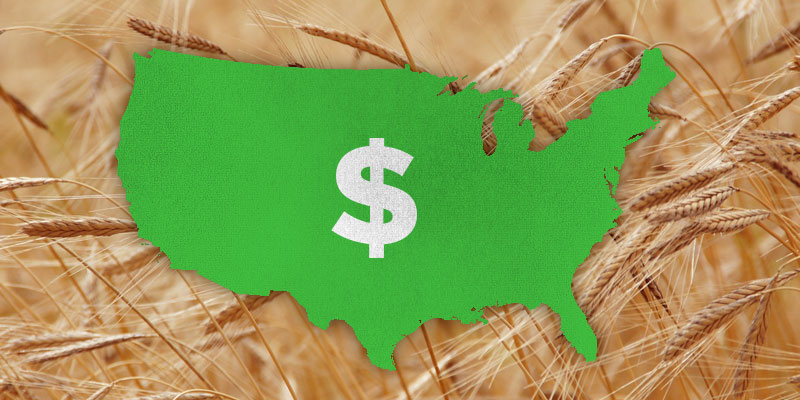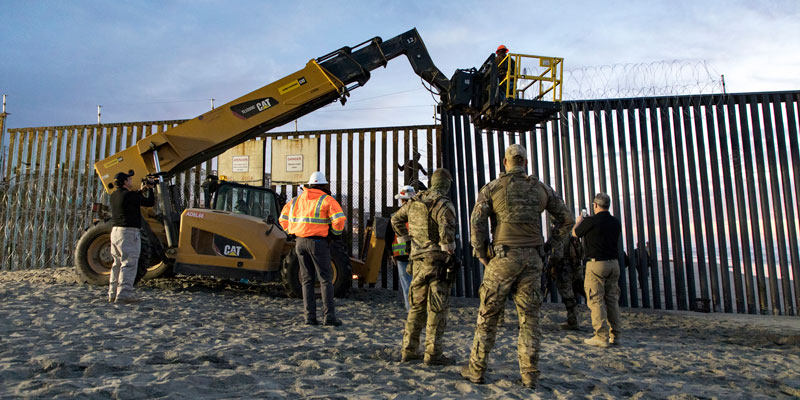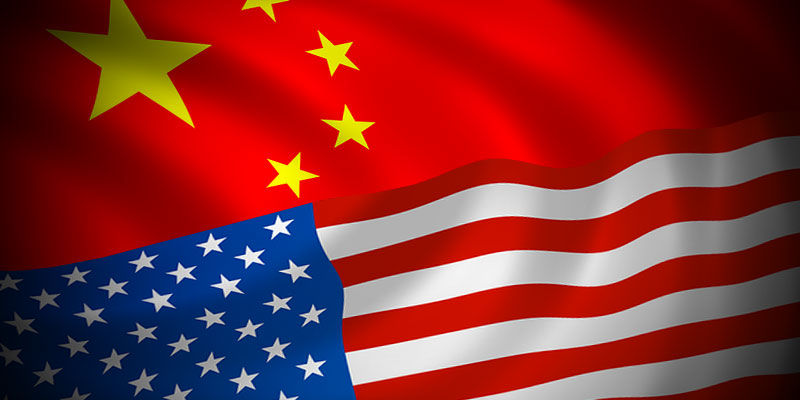Foreign control of American farmland doubled to 27.3 million acres between 2004 and 2014, the latest decade covered by United States Department of Agriculture data. This amounts to about 2 percent of American farmland overall, the value of which soared from $17.4 billion to $42.7 billion during that same period. And that’s the land we know about.
The Midwest Center for Investigative Reporting completed research that shows records on these land grabs are out-of- date, inaccurate, or incomplete, and USDA personnel have readily admitted in related media coverage that the department hasn’t enough resources to actively track purchases. Nor are there plans to start. A bipartisan bill called the Food Security is National Security Act of 2017 was introduced in an attempt to more easily track—and restrict—foreign investment in American land, but it has yet to make its way to the chamber.
What’s more: Nearly 1 million acres are listed in USDA’s database without any information on what country owns them. Canada, the Netherlands, and Germany own most of our agriculture land, but China more than doubled its holdings with the acquisition of the largest pork producer, Smithfield Foods, and ChemChina’s acquisition of seed and crop protection company, Syngenta.
Having increased its holdings from $81 million worth to $1.4 billion in two years, China now controls more than 400 farms, 33 food processing plants, and one out of every four hogs in the U.S.
How much of our land and resources will we so carelessly hand over before realizing the consequences to our quality of life and national security? The beauty of locally owned family farms and food systems is that owners work where they live, building strong economies and stewarding natural resources—because their lives and livelihoods depend on it.
Foreign ownership, however, paints a different picture altogether. Offshore possession locks out communities from growing their own food and accessing natural resources. It also threatens our abilities to live free from air, water, and soil pollution. In 1977, Wendell Berry addressed this in his book, “The Unsettling of America.”
“When people do not live where they work, they do not feel the effects of what they do,” he declared. “The people who make wars do not fight them. The people responsible for strip-mining, clear-cutting of forests, and other ruinations do not live where their senses will be offended or their homes or livelihoods or lives immediately threatened by the consequences.”
China’s purchase of Smithfield Foods speaks to this. When it was purchased, Smithfield already carried a long history of environmental problems on its farms, and the Chinese purchaser, now known as WH Group, brought a record that included allegedly feeding its hogs illegal chemicals.
These chemicals can then travel from hog to manure lagoon, and on to our air, water and soil.
Foreign interest artificially drives up the value of the U.S. land, leaving many American farmers unable to foot the cost of increasing acreage and discouraging beginning farmers from purchasing ground to break into the business of growing food. The average age of American farmers stands around 60 years old, with approximately 92,000,000 acres expected to go up for sale in the next five years. If American farmers are unable to purchase this land, who, can we assume, will buy it?
“An infinitely greedy sovereign is afoot in the universe, staking his claims,” Berry later wrote in “The Unsettling of America.” He may have been describing life as he knew it in 1977, but, today, never have those words rang truer. I hope President Trump will take notice to and help find a solution to this problem that fits well within his platform. With Trump’s background in real estate and international deal making, we’ve never had a more qualified president to help solve these issues, and I believe he’s just the guy to do it.
Hampton Reid is the owner and proprietor of Southern Turf Landscape in Mobile, Alabama, and has been developing and investing in real estate for the past 20 years.













